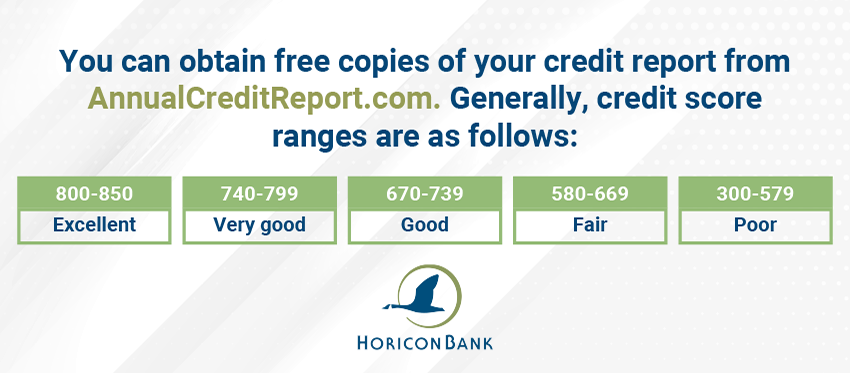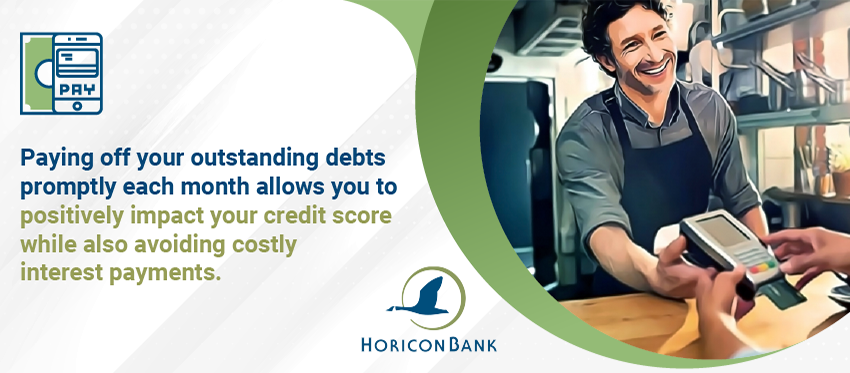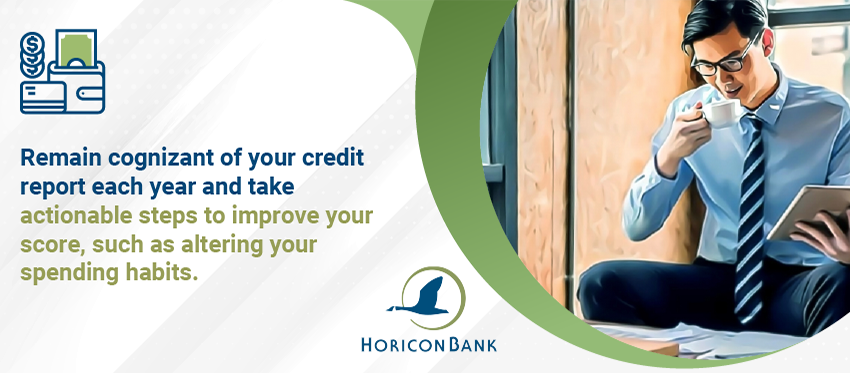When you turn 18, you begin to build a credit history. This history is used to calculate your credit score, a three-digit number that has a big impact on your ability to rent an apartment, get approved for loans, and enjoy the best interest rates (or not). If your credit score is lower than you’d like it to be, the first step is to figure out why. Then, follow the tips in this article to improve your credit score. The good news is that you may be able to realize an initial boost quickly, as there are a lot of opportunities to make small changes that lead to greater score increases.

What is a credit score?
A credit score is a mathematical formula or scoring model that uses the information in your credit report to predict how likely you are to pay back a loan on time. Lenders, potential employers, landlords, and utility companies may check your credit score to gauge the amount of risk involved in extending you credit, renting an apartment to you, or letting you open a new utility account without a security deposit. That’s why maintaining good credit is important if you want to move more easily through the world, get approved for loans when you need them, and enjoy the lowest interest rates available.
Generally, credit score ranges are as follows:
- 800-850: Excellent
- 740-799: Very good
- 670-739: Good
- 580-669: Fair
- 300-579: Poor
In order to work on building your credit score, learn about the most important factors that affect it:
- History of on-time bill payments
- Credit utilization ratio (how much of your available credit you’re currently using)
- Length of credit history
- Variety of types of credit accounts
- Recent account openings or applications for credit
- Any defaults, foreclosures, or bankruptcies on your record
How do I find out what my credit score is?
There are a number of ways to check your credit score. To start, you may have free access to your FICO score through one of your current bank or credit card accounts. Contact the financial institutions you have accounts with or login to your online account.
If not, you can purchase your credit score from one of the three major credit bureaus or another provider such as FICO. You can also use a free credit monitoring app, which may provide an estimated score instead of an exact one.
While you’re checking your credit score, it’s worthwhile to also review your credit report, which you can obtain free copies of from AnnualCreditReport.com.

How can I improve my credit score quickly?
If your credit score isn’t in the range you’d like it to be, there are a couple of strategies you can do now to improve your score over a relatively short period of time.
1. Pay off your credit cards and outstanding debts.
Make sure to pay off your credit cards as much as you can, which has the added benefit of reducing your interest payments. Get your balance down to zero if possible, and keep your balance paid off every month. Set an alert on your phone to remind you to pay off your bill, and keep an eye on your spending habits to make sure you don't go overboard. Similarly, paying off any of your outstanding debts is also a good practice. Focus on your low-cost debts first, and keep your healthy long-term debt, like mortgage payments, active so that you can build your credit score over time.
2. Use less than 30% of your card limit.
Use as little of your credit card limit as possible, and strive to keep it under 30% of your limit. Generally, people with the highest credit scores use less than 7% of their credit card limit each month. Again, this can help you keep your spending habits in check, which will yield long-term results to your financial health. This, coupled with having a low balance owed, can have an immediate impact on your credit score.
3. Don't miss payments.
Beyond just your credit cards, be sure that you aren't missing any other payments such as personal loans, mortgage, rent, car payments, etc. Payments that are 30 days late will be reported to credit bureaus, which will result in a negative blow to your credit score. Automatic bill pay is your best friend here, so use our Internet Banking tools to take control of your money and easily pay your bills from one website.
4. Review your credit report for errors.
Whether through technical errors or malicious activity from scammers, your credit report may contain information that is not accurate that is impacting your credit score. Be sure to carefully review your report and look for any potential issues that you can dispute. Read more about how to officially dispute errors on your credit report.
5. Become an authorized user.
If you are having trouble getting a credit card of your own, or getting a loan, you will have difficulty building up your credit score in the first place. Becoming an authorized user on someone else's credit card can help you begin building your credit. Positive payments made to that card will affect your score, so this is a good way to start out. It's not the fastest way to build your credit, since your status as an authorized user will not net you the same benefits as a sole account holder, but it can still be a useful tool for young people or those with very poor credit scores.
Horicon Bank is “the Natural Choice” for your local banking partner.
For more than 125 years, Horicon Bank has built a foundation of beneficial relationships with our customers. In the same way animals and plants thrive together in the internationally famous Horicon Marsh, we are linked to the growth and prosperity of the families and businesses in our communities. For help improving your credit score, contact us with questions or check out our full range of personal banking services.
